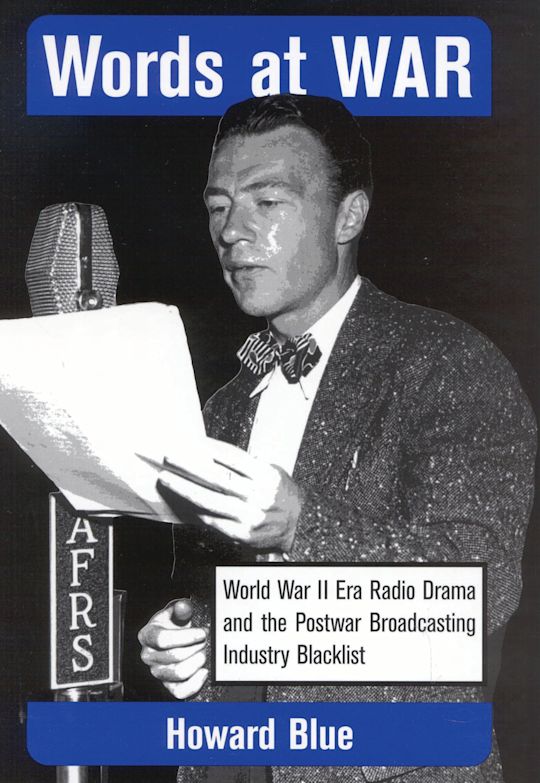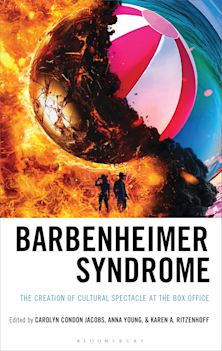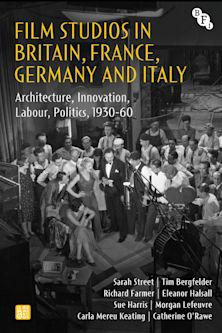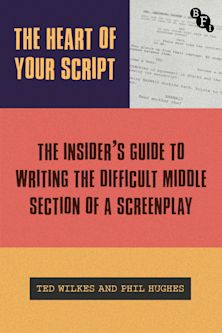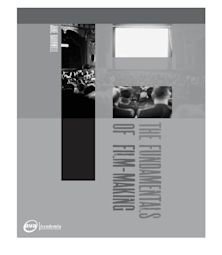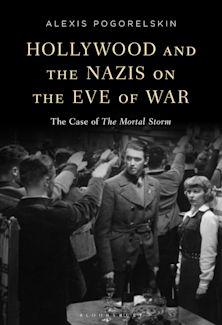- Home
- ACADEMIC
- Film & Media
- Film and Media Production
- Words at War
Words at War
World War II Era Radio Drama and the Postwar Broadcasting Industry Blacklist
Words at War
World War II Era Radio Drama and the Postwar Broadcasting Industry Blacklist
This product is usually dispatched within 1 week
- Delivery and returns info
-
Free US delivery on orders $35 or over
You must sign in to add this item to your wishlist. Please sign in or create an account
Description
Words at War describes how 17 radio dramatists and their actors fought a war of words against fascism abroad and injustice at home. Beginning in the late 1930s, the commercial networks, private agencies, and the government cooperated with radio dramatists to produce plays to alert Americans to the Nazi threat. They also used radio to stimulate morale. They showed how Americans could support the fight against fascism even if it meant just having a "victory garden."
Simultaneously as they worked on the war effort, many radio writers and actors advanced a progressive agenda to fight the enemy within: racism, poverty, and other social ills. When the war ended, many of these people paid for their idealism by suffering blacklisting. Veterans' groups, the FBI, right-wing politicians, and other reactionaries mounted an assault on them to drive them out of their professions. This book discusses that partly successful effort and the response of the radio personalities involved.
This book discusses commercial drama series such as The Man Behind the Gun, network sustained shows such as those of Norman Corwin, and government-produced programs such as the Uncle Sam series. The book is largely based on the author's interviews with Norman Corwin, Arthur Miller, Pete Seeger, Arthur Laurents, Art Carney and dozens of others associated with radio during its Golden Age. It also discusses public reaction to these broadcasts and the issue of blacklisting.
Words at War weaves together materials from FBI files and materials from archives around the country, including the Academy of Motion Picture Arts and Sciences, the National Archives and a dozen university special collection libraries, to tell how the nation used a unique broadcast genre in a time of national crisis. Readers in the era of the current World Trade Center terrorism crisis will be particularly interested to read about censorship, scapegoating, and the government's role in disseminating propaganda and other issues that have once again
Table of Contents
Chapter 2 1 Introduction
Chapter 3 2 The Writers
Chapter 4 3 The Actors
Chapter 5 4 On the Eve of World War II: Expressing Antifascism through Allegory
Chapter 6 5 Corwin and the Office of Facts and Figures
Chapter 7 6 The Office of War Information and Other Government Agencies
Chapter 8 7 Private Agencies
Chapter 9 8 Sponsored Radio Dramas
Chapter 10 9 Presenting the U.S. Armed Forces
Chapter 11 10 The Enemy
Chapter 12 11 America's Allies: The British
Chapter 13 12 America's Allies: The Soviets
Chapter 14 13 The Home Front
Chapter 15 14 Fighting Intolerance
Chapter 16 15 Women
Chapter 17 16 The War against the Jews
Chapter 18 17 Looking toward the Postwar Era
Chapter 19 18 The War Ends
Chapter 20 19 The Postwar Era: A Change of Enemies
Chapter 21 20 Conclusion
Chapter 22 Collections Consulted
Chapter 23 Selected Bibliography
Chapter 24 Index
Chapter 25 About the Author
Product details
| Published | Nov 19 2002 |
|---|---|
| Format | Hardback |
| Edition | 1st |
| Extent | 368 |
| ISBN | 9780810844131 |
| Imprint | Scarecrow Press |
| Dimensions | 9 x 6 inches |
| Series | Studies and Documentation in the History of Popular Entertainment |
| Publisher | Bloomsbury Publishing |
About the contributors
Reviews
-
Wonderful...without question, Mr. Blue's book illuminates every aspect of that Golden Age.
Film & History: An Interdisciplinary Journal
-
Fascinating...Recommended.
Choice Reviews
-
...reveals the previously unheralded role of the American Jewish Committee
American Jewish Committee Newsletter
-
Exceptional!
Today's Books
-
A nonfiction book with superb research...a fascinating and highly readable book about a major period in the history of both the nation and radio.
Radio Recall
-
This may well be the best book on American radio ever written. Blue has captured the vividness of network radio in its
golden era, meeting the crises of war with intelligence as well as drama (and comedy); and the now forgotten national tragedy of Cold War era crackdown on the very creators of the best programs. Radio has never recovered, and now we know the reasons.Paul Buhle, author of Popular Culture in America and Radical Hollywood, Brown University









